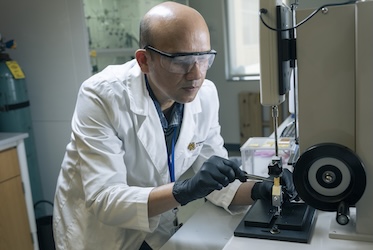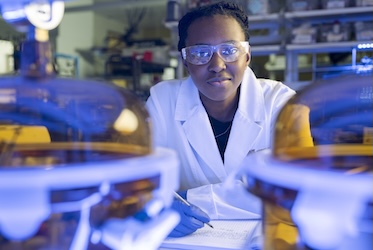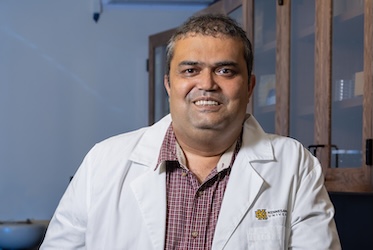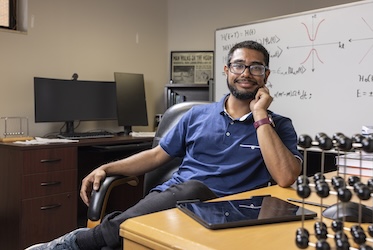
Kennesaw State researcher receives grant to study pollution effects in birds
KENNESAW, Ga. | Aug 29, 2022
Kennesaw State University assistant professor of biology Sarah Guindre-Parker has earned federal funding to expand her wide-ranging study
of starlings to examine how the birds reflect the pollution found in their habitats.

Guindre-Parker has earned a three-year $369,303 grant from the National Science Foundation to study heavy metal concentrations in starlings, a common bird found throughout metro Atlanta.
“I'm hoping to better understand how urbanization contributes to some of the heavy metals that are found in our environment,” she said. “In cities, there are more houses with lead paint, and we used to put lead in our gasoline, so theoretically all of that lead should be more concentrated in the city, but it’s unclear how that actually plays out in the environment.”
Preliminary data indicates that starlings nesting at urban sites have slightly higher lead concentrations in their systems compared to starlings using a rural nesting site. According to Guindre-Parker, this information can offer even deeper insights into urbanization.
“Starlings could serve as a sample for the environment in a location instead of us having to drive and sample soil or water in least 20 different areas,” she said. “Maybe a starling could aggregate all that information for us and be used to measure the levels of pollutants that humans face in the same zip code, which is what we hope to do under this grant.”
In addition to the study, the grant money will allow Guindre-Parker to expand her
research team with more graduate and undergraduate researchers. She also plans to
add 10 field study sites around the Atlanta area, including some sites in rural areas.
With these new sites, Guindre-Parker and her team will involve local high school science
students and teachers in soil sampling and other aspects of the research.

“We’re hoping to visit nearby schools and teach them a little bit about the work we do and teach them about heavy metals — where they're found, what caused them to accumulate in the environment and what their effects are on birds and humans alike,” she said. “We're hoping to also sample their schoolyards and make sure that their soils are safe for them. So, I think that's another exciting part of the grant that will tie in nicely to the research and the student training.”
Guindre-Parker said Kennesaw State’s location on a border between urban and rural areas makes it ideal for this research, and for her research into starlings overall. She noted that KSU draws students from both urban and rural settings interested in in this research, and several professors and researchers in the College of Science and Mathematics study the effects of urbanization on the environment.
“KSU is well-situated to tackle this type of question and to be a front-runner on the topic of urbanization research,” she said. “And it’s cool because it also spans our student population, so it can draw more people into the type of research that we’re doing. Everyone can find something interesting or relevant to their lives in that type of research.”
The grant began Aug. 1 and funding runs through July 31, 2025.
– Dave Shelles
Photos by Jason Getz
Related Stories

Kennesaw State researcher tackling sustainability through use of transparent wood

Chemistry student engaged in sustainable catalyst research through Kennesaw State's First-Year Scholars program

Kennesaw State researchers awarded Department of Energy grant to investigate materials that boost energy-efficient technologies

Kennesaw State physics student awarded Goldwater Scholarship
A leader in innovative teaching and learning, Kennesaw State University offers undergraduate, graduate, and doctoral degrees to its more than 47,000 students. Kennesaw State is a member of the University System of Georgia with 11 academic colleges. The university’s vibrant campus culture, diverse population, strong global ties, and entrepreneurial spirit draw students from throughout the country and the world. Kennesaw State is a Carnegie-designated doctoral research institution (R2), placing it among an elite group of only 8 percent of U.S. colleges and universities with an R1 or R2 status. For more information, visit kennesaw.edu.














